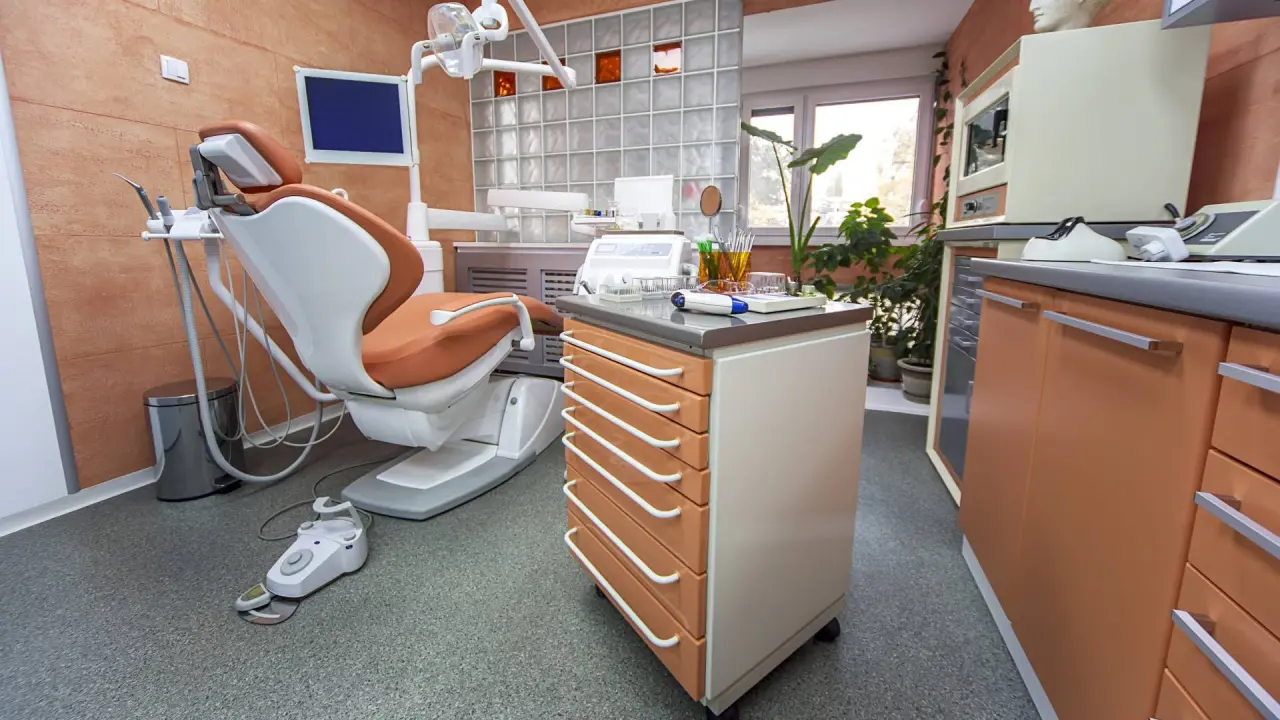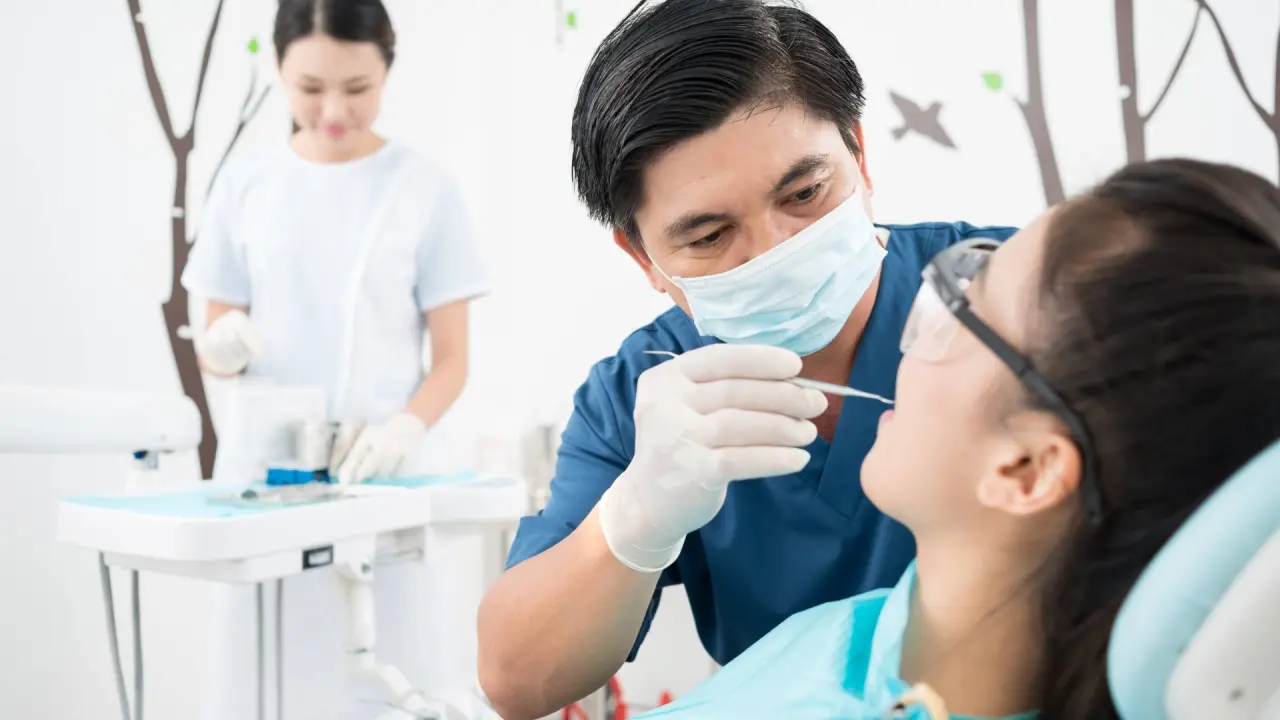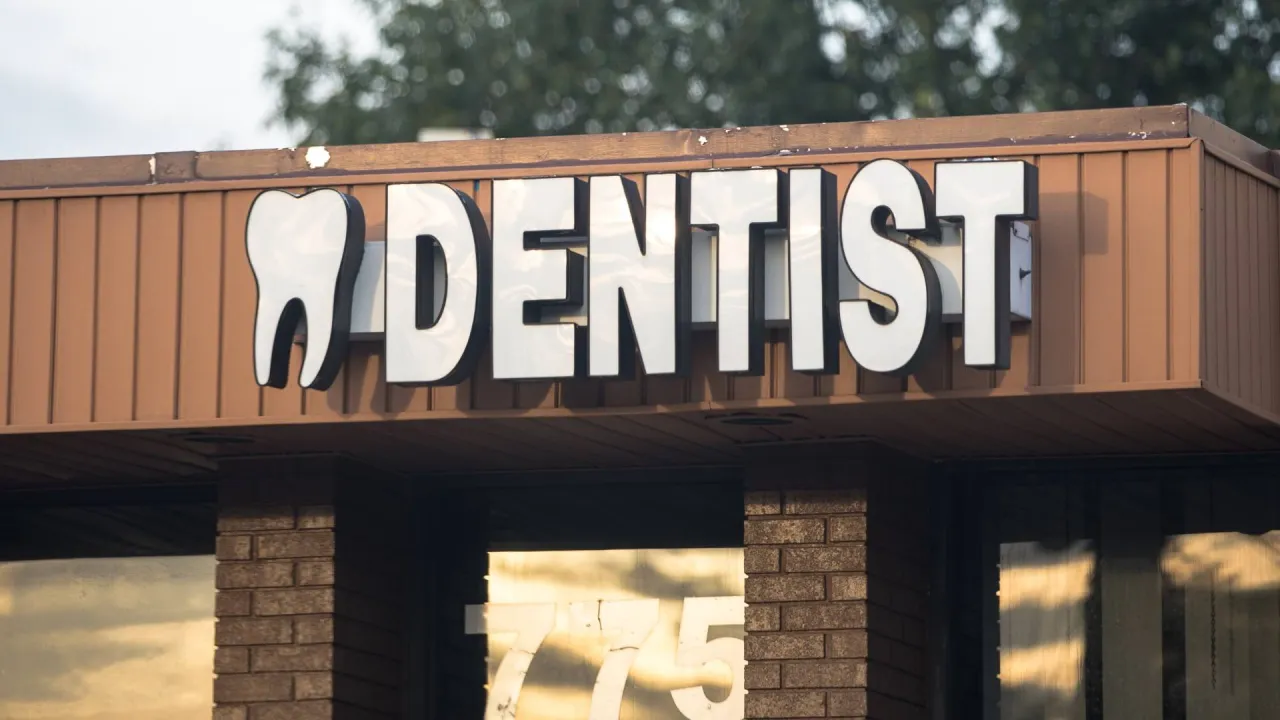- How Much Does It Cost to Buy a Dental Practice?
How Much Does It Cost to Buy a Dental Practice?

Starting your own dental practice has many benefits, including the ability to set your own rates and specialize in a specific type of dentistry. Despite these benefits, getting a brand-new practice off the ground takes a lot of work. If you want the benefits of owning a practice without the hassle of starting one from scratch, buying an established practice is another option. We developed this guide to help you understand the costs involved in starting your own practice or buying an established one.
The Cost of Starting a New Practice

According to the American Dental Association, you can expect to pay about $500,000 to start a new dental practice from scratch. One of the most significant costs is construction. If you can rent a dental office instead of building one, you may be able to reduce your total cost of ownership. Once you have the building ready, you need to fill it with dental chairs, instrument trays and other types of dental tools and equipment. You'll also need furniture for your reception area, treatment rooms and practice waiting room.
If you plan to use specialized software to manage your practice, you may need to purchase the software outright or sign up for a monthly subscription. Before you have your grand opening, you'll also have to stock your practice with letterhead, envelopes, pens and other office supplies. When all is said and done, you may spend as much as $200,000 on office supplies, tools and equipment. Expect to pay more if you plan to hire a marketing firm or a professional web designer right out of the gate.
After spending all this money to build an office, you most probably have a mortgage costing thousands of dollars per month. On top of that are the two other fixed expenses: rent and payroll for staff. You will have these expenses on day one, and most likely no money coming in. You'll want to have significant savings to stay afloat until enough money is coming in to pay the bills, and you will still need money to live on personally of course on top of that. For buyers keeping a job to support themselves, the growth of the practice tends to be greatly delayed. Thats why many young dentists (despite plenty of student debt) are buying practice with 100% financing so they can transition from being a full time associate dentist to a full time practice owner overnight.
Pricing for an Established Practice

The average price of a dental practice is typically around 72% of its gross receipts. The percentage may be higher or lower, but it depends primarily on net income. It doesn't matter what you take in — what matters is what you take home.
It's important to factor in the value of the equipment into the sale price, as well. Some offices have beautiful modern equipment with computers, sensors, cone beams and Cerec machines. Some offices have old units, one X Ray machine, a Peri-Pro and no computer records. Two offices with the same financials but different equipment and technology will be priced very differently.
It's important to understand that how much a practice costs is related to its gross revenues, net revenues, and equipment and technology value. US Dental Practices has the experience to prepare practice valuations that factor all these into the value of the practice.
Factors Influencing Sales Prices

Many factors go into determining how much a dental practice costs. Although financial performance is one of the most important, the dentist selling the practice must also consider:
- How many active patients they have
- How much time they've spent building up the practice
- How much they've spent on dental equipment
- Whether the office has the necessary technology already in place or whether it will require significant investment
- Whether the office is in move-in condition or will require significant remodeling
The following are just some of the factors that influence the sale price of an established practice:
Practice Location

Location can influence the patient flow of an established dental practice. If the practice is in an area with a declining population and not much economic activity, the revenues and growth potential are likely to be a lot lower than those of a practice in a city with a growing population.
Location also influences how easy it is for patients to access your practice. A practice in an urban area may be close to bus or train transportation, while a practice in a rural area may only be accessible by personal vehicle. Competition in rural areas can be significantly less, and often an existing practice has a monopoly on service and is doing extremely well.
More questions arise in this area, too: Does the office have ground floor visibility or is hidden in a building? With most people searching online for things, is the visibility worth the additional rent expense? Would you rather spend money on Google ads or rent?
Patient Demographics

After you determine how many active patients the practice has, you should dig a little deeper to find out if the practice has the right patient demographics to support long-term growth. In marketing terms, demographics are a set of characteristics that can be used to segment customers into groups. As a dentist, you should be most concerned with average age and income level when doing your due diligence on an established dental practice.
Age is important because you need to know that you'll have enough patients to support the practice if you decide to buy it. If the average patient age is 60, for example, you may hesitate to buy the practice because it doesn't have enough young patients to grow your revenue. A lack of young adult patients may also prevent you from adding as many new pediatric patients to the practice as you'd like. However, young populations don't need periodontists or implants, and if these practice areas are where you're hoping to focus, then an older population is better suited to your business model.
Income level is important because you need to know that patients can afford to pay for the services you provide. If you do implant dentistry, a practice filled with wealthy patients is likely a better buy than a practice with an average patient income of $40,000 per year. Because dental implants cost as much as $4,500 each, wealthy patients would be much more likely to pay for them. If you do general dentistry, income level isn't quite as important, but it's still something you should consider.
Staff Qualifications

In many cases, the employees of an established dental practice keep their jobs when a new owner takes over. Therefore, staff qualifications are an important consideration in determining a fair price for a dental office. Experienced employees are a real asset to a practicing dentist, so you can expect to pay a little more for a practice that has several employees who've held the same jobs for several years. The sale price might be a little lower if the practice struggles with staff turnover and doesn't have any employees who've been there for more than a year or two.
Staff credentials must also be taken into consideration. If a practice has employees with advanced credentials in dental hygienics, dental assisting or dental laboratory technology, it might cost more than a practice with employees who have only the most basic degrees and certifications.
The transition of the selling dentist may or may not be significant in the sale. Some sellers are mostly administrative in nature, but at some practices, the seller is the whole practice. Its up to the buyer to decide if that particular situation is best for a longer or shorter term transition. Usually, a transfer takes no longer than 6 months to complete. In many cases, the seller simply finishes a few cases and leaves, with buyers frequently growing the practices significantly after transfer.
Financial Stability

Financial performance is such an important consideration that it can take several weeks to do a thorough review of the financial statements and determine if a practice is worth further attention. Many dentists focus solely on production, which is to their detriment, as it's possible for a practice to be highly productive without being profitable.
Roger Levin, an experienced dentist who also has a master's degree in business administration, explains that production measurement and collections measurement are two of the most important indicators of financial health for a dental practice.
Production Measurement
Production measurement focuses on productivity and efficiency. Practice managers typically calculate production per patient, production per chair and production per dentist or hygienist hour. Case presentation and case acceptance are also important performance indicators.
Case presentation measures how well a practice takes advantage of new opportunities to generate revenue. This is the sales process in which a dentist presents a list of recommended services and asks the patient to sign off on the treatment plan. Case acceptance is when a patient agrees to take the dentist's recommendations. As a buyer, you want to look for a practice with high levels of case presentation and case acceptance.
Collections Measurement
It doesn't matter how much revenue a practice generates if that revenue is never collected. Total practice collections, collection ratio and practice accounts receivable are three performance indicators used to assess how well the practice is performing from a financial perspective.
Total practice collections refers to the amount of cash available to cover operating expenses. Without enough cash flow, it's difficult to cover employee compensation, clinical costs, facility costs and other costs of doing business. A practice with plenty of cash flow is likely to command a higher sale price, provided it has a stable patient base.
Collection ratio shows the relationship between production and practice income. If a practice generates $1 million in revenue and loses 25% of it to bad debt, that's a $250,000 loss. That's why it's so important to aim for a high collection ratio. The sale price of a practice with a high collection ratio is likely to be much higher than the sale price of a practice that's always writing off bad debt. In many insurance-based practices, the usual and customary fee are billed, with the difference between UCR and the insurance company's reimbursement fee schedule written off. If this is the reason for the discrepancy between production and collection, it is not a sign of a poorly run practice — instead, it's merely a reflection of the business model and billing system of the practice.
Accounts receivable is the amount of money owed to the practice for services already rendered. Some patients pay quickly, but others take 30, 60 or even 90 days to pay. After 90 days, it becomes increasingly difficult to collect what's owed. Almost always, accounts receivable on the day of closing are the property of the seller. The buyer will then come in and initiate their own collection policies, hoping to improve on the ones that had been in place previously.
Get Help Buying a Dental Practice

Once you decide whether to start a brand-new practice or buy an existing one, it's wise to get help from professionals who understand what goes into pricing a dental business. US Dental Practices has experienced team members ready to help. Call (800) 449-8641 for assistance.
Our local brokers can help you through the transitions process.
We provide personalized assistance with buying, selling, or financing a practice.
Talk with a local brokerDental Practice Transition Specialist
Dr. Bill Lossef graduated from NYU Dental College in 1980. He worked as an associate in several different types of practices before starting his own Fee-For-Service practice in Greenpoint, Brooklyn in 1984. He eventually sold his interest in the practice in 2017, retiring completely from chairside dentistry in 2018. In 2011, Bill started as an associate with another dental practice broker. In 2014, Bill decided to leave that brokerage and move to US Dental, where he was given the opportunity to lead the sales team. Buyers and Sellers appreciate his hands-on approach that helps get deals from the starting line to closing. Bill is also a real estate salesperson licensed through the Oxford Property Group in Manhattan. Bill works with several agents at Oxford as well other agencies. Bill lives with his wife Deb on Long Island and enjoys traveling to meet dentists anywhere in the NY, NJ, and CT areas.
Send me a message
I will get back to you as soon as I can
Subscribe to our Newsletter
Receive our newest dental listings, articles, and news, sent to your inbox weekly.
